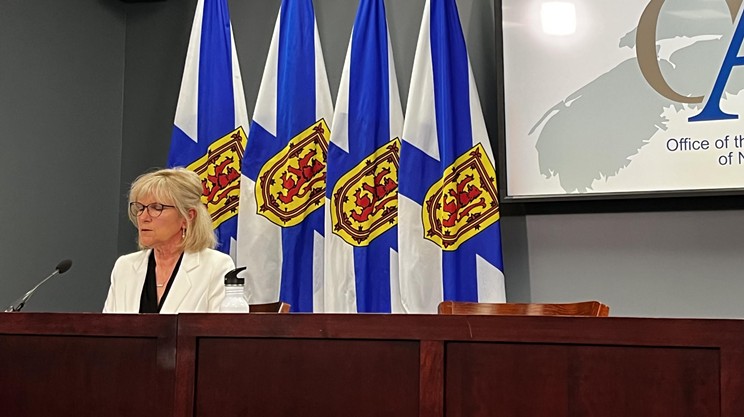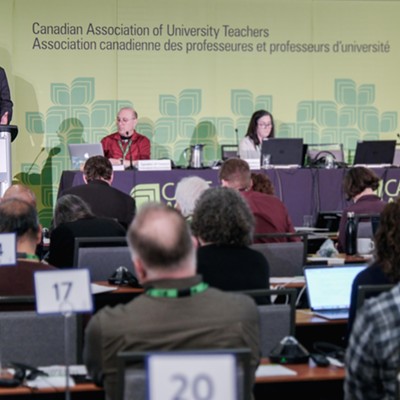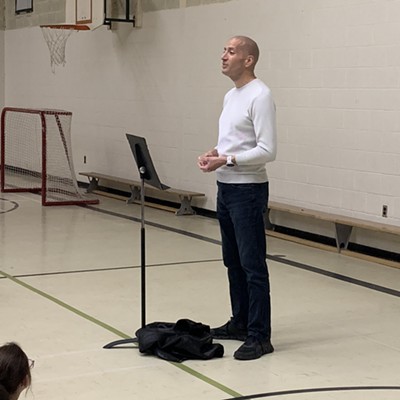The report from auditor general Kim Adair on school violence made clear three key messages.
First, there is an inadequate focus on preventing and addressing violence in schools. Second, the government does not know the full extent of violence in schools due to a lack of data collection. And finally, that educators are not adequately supported to manage violence in the workplace.
As the Coast recently reported, the Antigonish Women's Centre and Sexual Assault Services Association— a community-based registered charity—is delivering a program to local schools that teaches students about healthy relationships as a way to mitigate gender-based violence; to be proactive rather than reactive, and ultimately, to make kids safer at school.
The Healthy Relationships for Youth Program (HRY) is working. According to program data, 77% of youth facilitators and 49% of participants feel their school is a safer space because of it.
It’s a program with a proven track record that has received an influx in funding because it closely aligns with recommendations made in both the National Action Plan to End Gender-Based Violence and the Nova Scotia Mass Casualty Commission (MCC).
“This program puts a focus on primary prevention strategies that address the root cause of gender-based violence in order to stop the violence before it occurs,” said Anita Stewart, executive director of the Antigonish Women's Centre and Sexual Assault Services Association.
A few weeks ago, the HRY received a $2.5M boost from the Public Health Agency of Canada and the Nova Scotia Advisory Council on the Status of Women to expand it into more schools in the province.
But the same government that awarded the funding to expand HRY says that the programs they already have in place are addressing recommendations outlined in the MCC. But if they’re doing what they’re supposed to be doing—which according to a spokesperson at the Department of Education and Early Childhood Development (EECD) is “help our students build skills to navigate sensitive and important issues and situations safely”—then why is school violence worse than ever?
In an email to The Coast, the spokesperson for EECD also said “teachers are empowered to make professional decisions when developing lesson plans that can include external resources. The Antigonish Women’s Centre and Sexual Assault Services Association's Healthy Relationship for Youth Program is an example of one of these resources.”
Basically, if schools want to implement the HRY in their classrooms, then it’s up to the individual teachers to take that on, not the province.
Nova Scotia Teachers Union president Ryan Lutes says this response is a “cop out.”
“It’s true in general that teachers have a lot of autonomy to figure out what works best for them in terms of delivering the outcomes that the province tells them to deliver,” said Lutes. “On the other hand, I also think that when it comes to some of these bigger issues, teachers need guidance.”
He says that teachers can’t implement a program like HRY if they don’t know about it, so it’s the province’s job to at the very least, bring it to their attention.
“The increased violence in schools is just something that’s not a priority for the department right now. Part of the AG report is that they haven’t taken the issue seriously,” said Lutes. “I think one of the ways they could take it more seriously is to say ‘hey, teachers, there’s this great program and we want to help you deliver it’.”
Instead, he says, “we’re just leaving them on an island” expecting them to figure it out for themselves.
The auditor general’s report recommended the implementation of a province-wide strategy to address school violence. The HRY seems to have a proven program at the ready, all it needs is the green light from the province.
“We would love to see the Department of Education make this mandatory, but that’s not something we have so much control over,” said Stewart. “But our short-term goal is to have this program available to all schools across Nova Scotia and we have recently hired people to help with that expansion.”
















